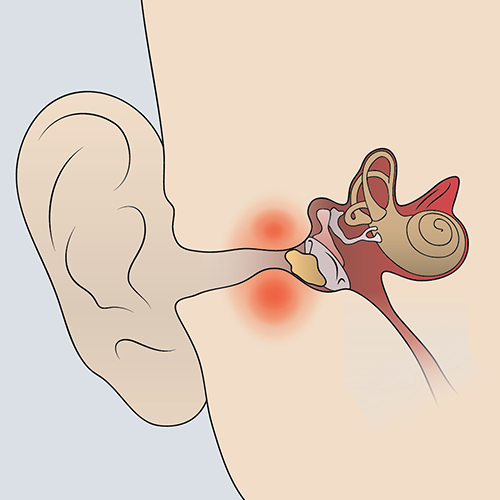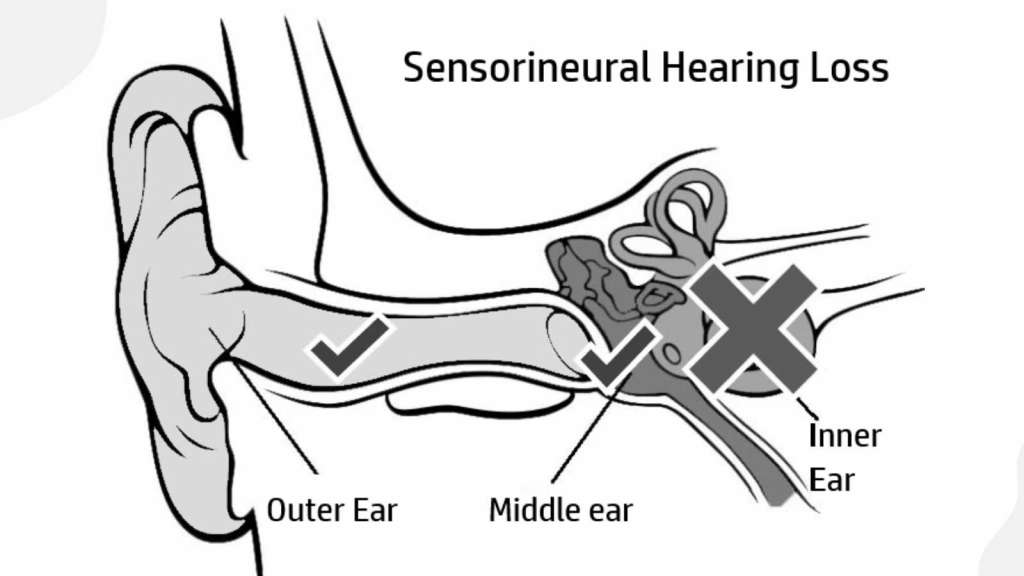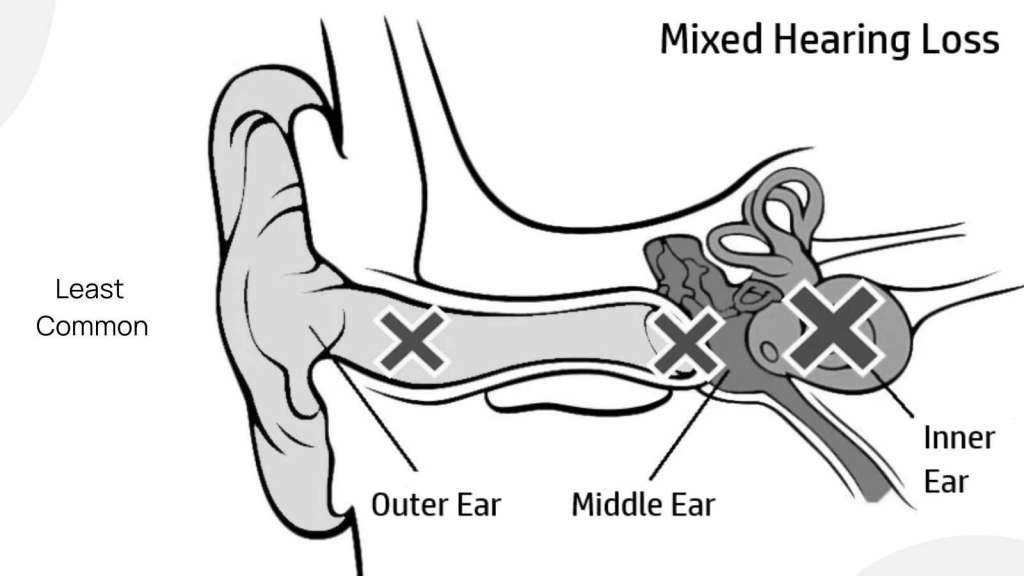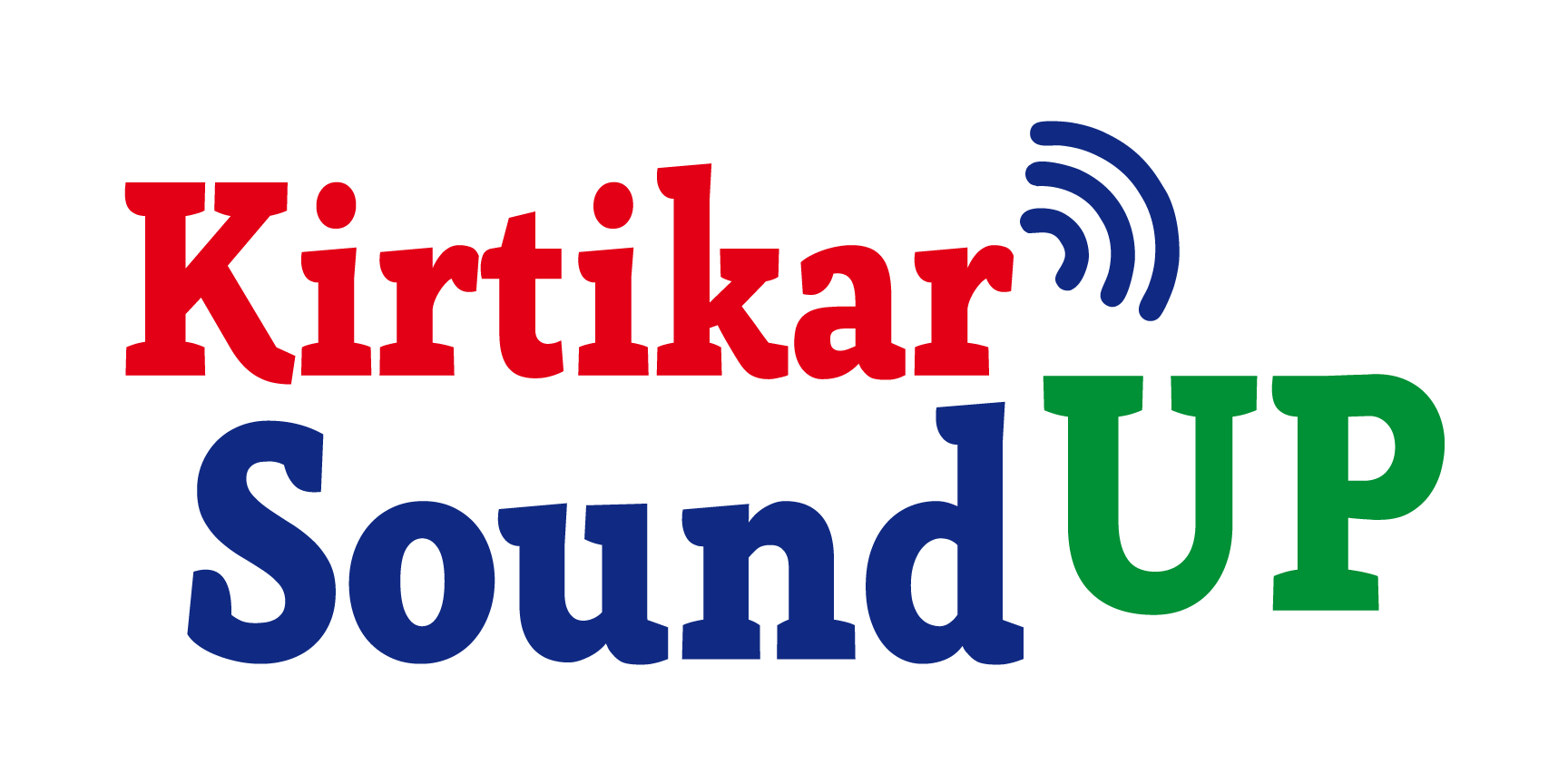What is hearing loss?
When your hearing system is harmed, hearing loss occurs. You may find it difficult to understand, follow, or take part in conversations if you have hearing loss. You could find it difficult to follow dialogue when watching television, to participate in online meetings, or to hear phone conversations. Your ability to work, interact with people, and simply enjoy life can all be negatively impacted by hearing loss. Hearing loss is typically severe. However, medical professionals who specialize in identifying and treating hearing loss, known as audiologists, can be of assistance. They can suggest therapies that lessen hearing loss, such as cochlear implants or hearing aids. Audiologists can help if you are suffering from this type of hearing loss problem, Please visit Kirtikar Sound UP, a well-recognized destination in Pune, to solve your concern.
Types of hearing loss
There are three types of hearing loss:
- Conductive Hearing Loss
Sounds have a difficult time reaching your inner ear if you have conductive hearing loss.
The outer, middle, and inner ears are the three parts that make up your ear. When sound waves are unable to pass between the middle and outer ears, conductive hearing loss occurs. and then soft sounds could be difficult to hear, as well as louder sounds that may become harsher.
This kind of hearing loss is often treatable with medication or surgery.
Causes of Conductive Hearing Loss
The following factors can lead to this kind of hearing loss:
- Middle ear fluid is caused by allergies or colds.
- Otitis media, or an ear infection.
(Otitis is the term used to refer to an ear infection, while media denotes middle.) - Poor Eustachian tube performance.
(Your nose and middle ear are connected by the Eustachian tube, this tube allows middle ear fluid to flow out. Incorrect functioning of this tube can allow fluid to stick around in the middle ear). - An opening in the eardrum.
- Benign tumors
(Although they can obstruct the middle or outer ear, these tumors are not cancerous.) - Cerumen or earwax is stuck in the canal of your ear.
- An external otitis or infection of the ear canal. This is often known as a swimmer’s ear.
- Something stuck in the outer ear canal. For example, if your youngster is playing outside and accidentally puts a stone in his ear.
- An issue with the development of the middle or outer ear.
(Some individuals are born without their outer ear. While some people may have an issue with the bones in their middle ear or a misaligned ear canal.

- Sensorineural Hearing Loss
Sensorineural hearing loss results from injury to the inner ear.
Since, there are outer, middle, and inner ears, those are the three parts that make up your ear. After an inner ear injury, sensorineural hearing loss (SNHL) develops. SNHL may also be brought on by issues with the neural networks that connect your brain to your inner ear.
The most prevalent kind of lifelong hearing loss is this one. It could be difficult to hear soft sounds. Even louder noises could sound muffled or indistinct. So, surgery or medication alone cannot usually correct SNHL. You might be able to hear better with hearing aids.
Causes of Sensorineural Hearing Loss
The following factors may contribute to this kind of hearing loss:
- Infections.
- Substances harmful to the hearing.
- Experiencing hearing loss that is inherited.
- Aging
- A hit to the head.
- An issue with the inner ear’s development.
- Paying attention to explosions or loud noises.

- Mixed Hearing Loss
A problem in both your inner and middle ears can result in mixed hearing loss.
Conduction loss can occasionally occur along with sensorineural hearing loss, or SNHL. This suggests that there might be harm to the inner ear, the nerve system leading to the brain, the middle or outer ear, or both. This hearing loss is mixed.
Causes of Mixed Hearing Loss
Mixed hearing loss can result from anything that causes SNHL, or conductive hearing loss. A good example would be if you have middle ear fluid and suffer hearing loss as a result of working near loud noises. Your hearing may be more damaged from both combined issues than from either one alone.

